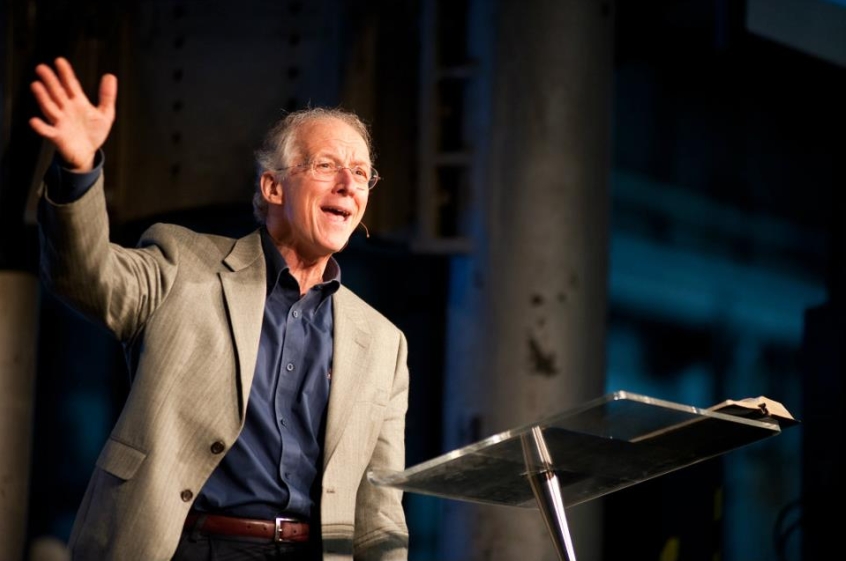
Is one kind of Christian service worth more than another? It's a question that's surfaced in a podcast by John Piper, who founded DesiringGod.org and has a vast following in conservative circles.
Piper was challenged on a statement he'd made implying a "hierarchy of human action", describing frontline missionary work as "the second greatest human activity in the world" (worship is the greatest). He responded by quoting 1 Timothy 5:17 and 1 Thessalonians 5:12-13, about the respect due to elders, and acknowledging that there's an "evil way to make distinctions" and that fundamentally we're all equal.
Nevertheless, he says, activities are different. Teaching algebra doesn't save sinners, preaching sermons does. And a ministry like his own, in which he spent 33 years "basically surrounded by people who loved and approved me and who paid me well in a society that didn't put me in jail, in a city with ample medical care, central air conditioning, functioning infrastructures" was secondary in honour to that of missionaries who have "taken more risks, go into harder places, enduring greater trials with less affirmation".
Is he right? We can recognise his honourable intent and applaud his humility, and at the same time fundamentally disagree with him. And it's not a small issue. The initial challenge to Piper came from someone concerned about the establishment of a "spiritual hierarchy", in which some activities were somehow worth more than others. Anyone who's immersed in church life will recognise this temptation. It's not admitted or addressed, but it's real: the missionary, the pastor, the worship leader or the elder has somehow made it into a different league of Christian service. Public ministry has become something to aspire to. And this is explicitly recognised in Scripture: Paul tells Timothy: "If anyone sets his heart on being an overseer, he desires a noble task" (1 Timothy 3:1).
Recognising it, though, is not legitimising it. And the whole current of Scripture is against validating that sort of hierarchy. In Mark 10:35-45 James and John ask Jesus for places of honour in his kingdom. He answers by relating Christian promotion not to glory but to suffering: "Can you drink the cup I drink or be baptised with the baptism I am baptised with?" (verse 38).
For all its apparent basis in Scripture, Piper's account is a fundamentally secular one. He ranks people according to their role. But God has different standards entirely. He judges people justly, with a complete knowledge of who they are and what they are facing in their lives.
So how about this for a comparison?
A teacher of algebra goes to work each day and delivers her lessons. She cares for her pupils and does her utmost to help them learn. What no one else sees is that she's battling chronic pain, that her husband is sick and that her children are needy. The care and devotion she shows at work are part of a whole lifetime of sacrificial devotion to others in the name of Christ.
And then there's the missionary in a frontline situation, trying to establish a new congregation with little if any help. But he's enjoying the challenge, learning the language, getting to know people, feeling he's doing some good, looking to the longer term. Yes, he'd like a full church, but truth to tell, he's having a blast.
So which stands higher in the Christian hierarchy? Clue: it's not the missionary. Because we are not judged by what we do, or even how faithful we are, but by what it costs us – and that's something only God knows.
On the day the books are opened, we'll all be surprised at who stands lowest and who highest. The ones who are first in honour will be those of whom we've never heard, who faithfully bear the faith through trials most of us never even notice. And our worldly obsession with rank and status – even the Christianised version that's current in our churches – will be shown up as the hollow fiction that it is.
Jesus said: "Whoever wants to become great among you must be your servant, and whoever wants to be first must be slave of all" (Mark 10:43-44). The thing about servants is that no one really notices them. But one day their hidden greatness will be revealed.
Follow Mark Woods on Twitter: @RevMarkWoods













